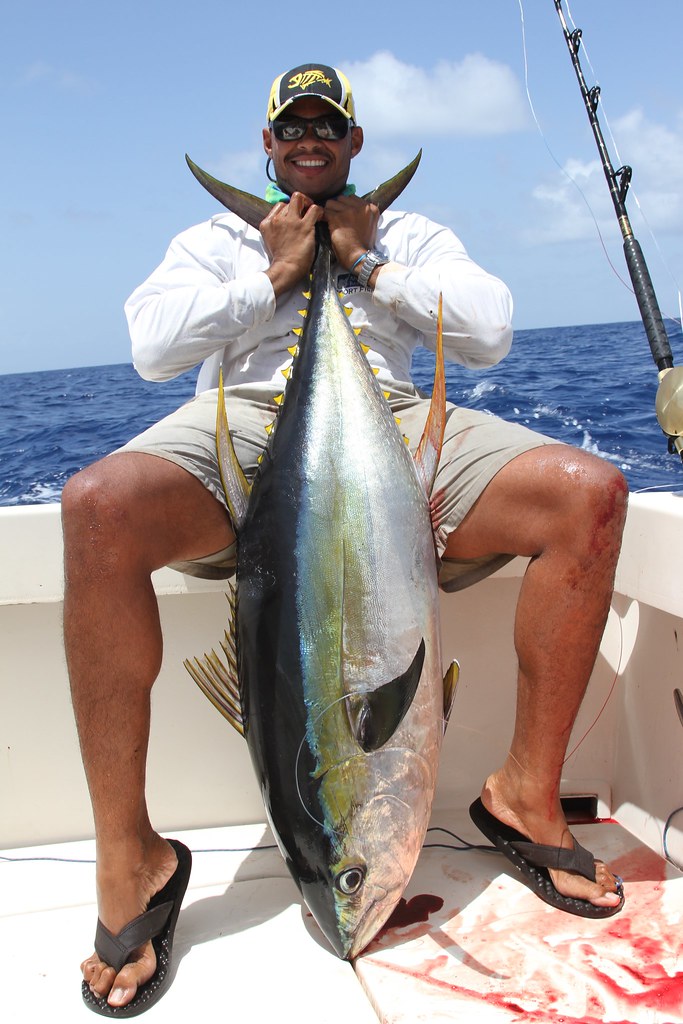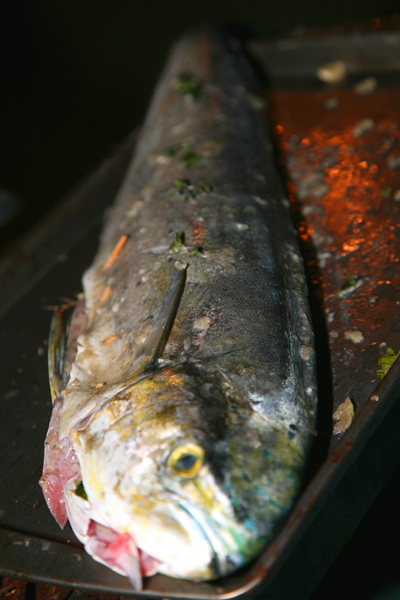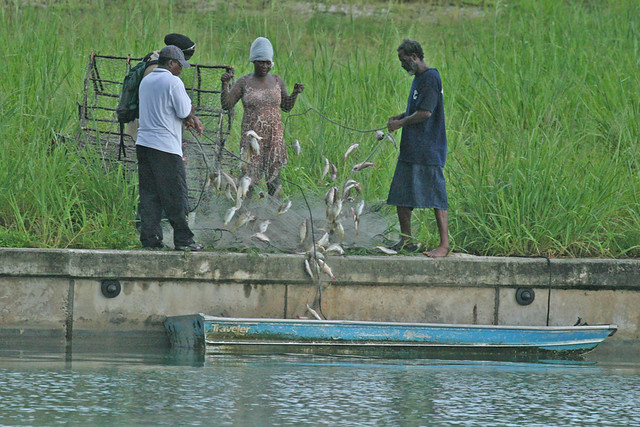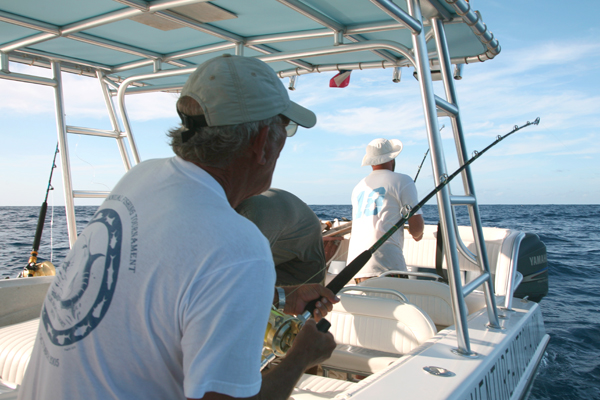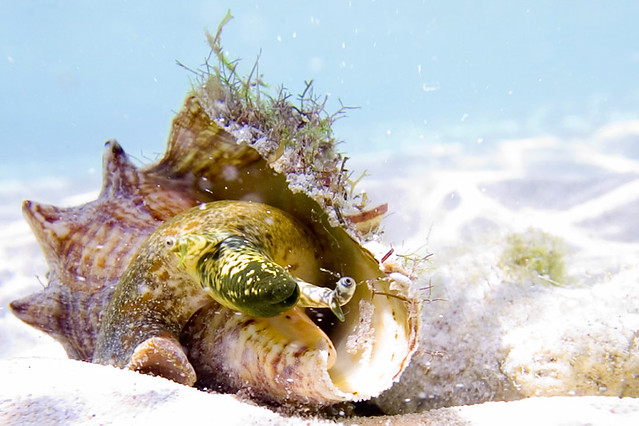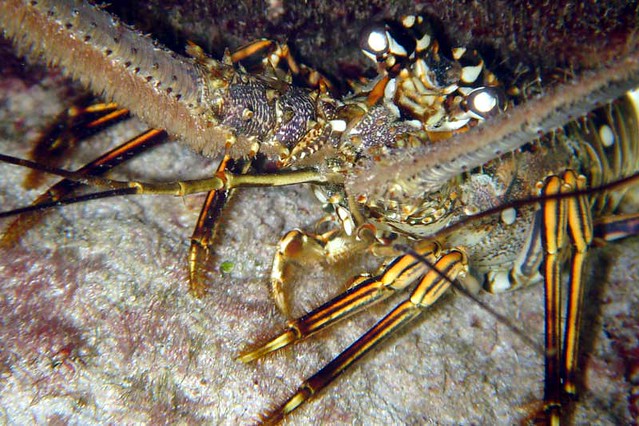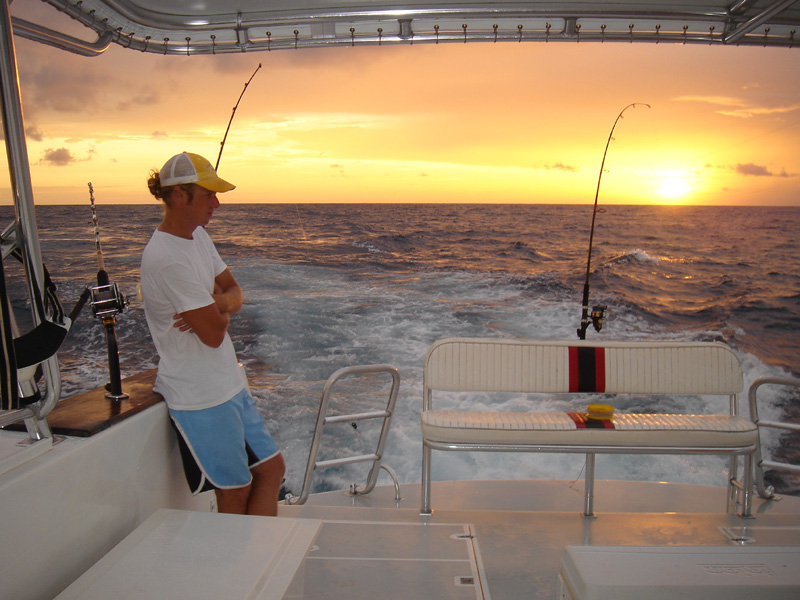This is a blog set up by Eli Fuller (me) to help keep readers informed and to promote our little country to prospective guests. It's also to make sure that new info about our island is passed on quickly and also to receive feedback on this info. Of course most of the things i write about have themes of ecology and usually have quite a bit to do with my company Adventure Antigua. Make comments anytime you want, but check the site above to book your adventure.
Friday, August 26, 2011
Sustainable seafood - a look at eco friendly fish dinners.
This was taken from my column in Enjoy Magazine which comes out here in Antigua every two weeks. There are copies all over the island. ENJOY!
These days choosing what seafood you will order from the menu can have as much to do with your morals as your taste buds, and having good info about what's on offer will help you enjoy your meal that much more. I remember taking Environmental Science as an elective in University back in 1989 and hearing about why certain fish stocks had plummeted. It all had to do with supply and demand as is the case with most things i guess, but the main message was that historically, seafood was only eaten by people who lived close to the sea. Now with modern supply chains, refrigerated storage and other technological advances even people in Allen, South Dakota (1024 miles from the nearest shore) can have fresh seafood whenever they want. The demand outweighs the supply quite often.
There are many different types of seafood that you will find here on the menu in Antigua, some more "eco-friendly" or sustainable than others.
What makes a seafood sustainable? Seafood that is caught in a way that will not jeopardize the survival of the species or the eco system from where it is taken is considered sustainable, but there are other considerations that have to do with the ecological footprint of that seafood. The ecological footprint would partially have to do with whether the seafood was imported, how far it had to be shipped from, and the methods of harvesting. This is very hard to figure out for imported seafood as we don't usually have that information when it arrives in Antigua.
For people living in the USA there are some great guides on sustainable fish and seafood. There has been considerable research done on the status of different fish species and what harvesting methods should be used in order to catch that species sustainably. We here in the Caribbean can use some of this research to help us decide what to eat and what to avoid. The Environmental Defense Fund has a great seafood guide on the internet and there are even similar apps these days for your smart phone.
Mahi Mahi or Dolphin Fish above. Read more about them here.
Although imports such as salmon, US caught shrimp, and squid can be labeled eco friendly, I think that it's best to eat locally caught "pelagic" or open ocean species that reproduce quickly. Such species are Atlantic yellowfin tuna, blackfin tuna, wahoo, Dolphin Fish (a.k.a Mahi Mahi), Rainbow Runner, and some Mackerel species. While most of these fish are available here on the menu much of what you will find in restaurants is imported to meet demand.
If you really want to eat responsibly ask your chef where the fish comes from and ask if they know if the fish were caught by rod and reel. If these species were caught locally on rod and reel then the chances that there was by-catch is almost nil. One of the big problems with eating tuna these days is that most tuna is caught in nets or on long lines.
It's almost impossible to catch fish in nets without killing others species in the nets as "by-catch". Often this by-catch happens to be endangered animals. There is quite a big community of fishermen here in Antigua that catch pelagic fish with rod and reel and some restaurants try to purchase only from these fresh sources.
If you support these eateries then you will be helping the environment too.
It is the opinion of most local marine biologists and environmentalists here in Antigua that shelf and inshore fish are not currently being caught in a sustainable way. These species include all reef fish and could possibly include deep water snapper and grouper.
At the moment lobster and conch also commonly fall into the unsustainable category as there are no closed seasons and poorly monitored and enforced size limits. Their diminishing numbers attest to this.
Setting up well managed Marine Protected Areas (like the NEMMA that I have blogged about) as well as open and closed seasons with carefully managed size limits will help create sustainable fisheries and make some of the species mentioned above "eco friendly", but for now if you want sustainable seafood your best choice would be the pelagic species caught by rod and reel.
(edit: This blog was posted on the Sustain T&T facebook page. Click here) Someone then posted a link to a very good Trinidad and Tobago sustainable seafood paper. Click here for that one.)
Subscribe to:
Comments (Atom)
